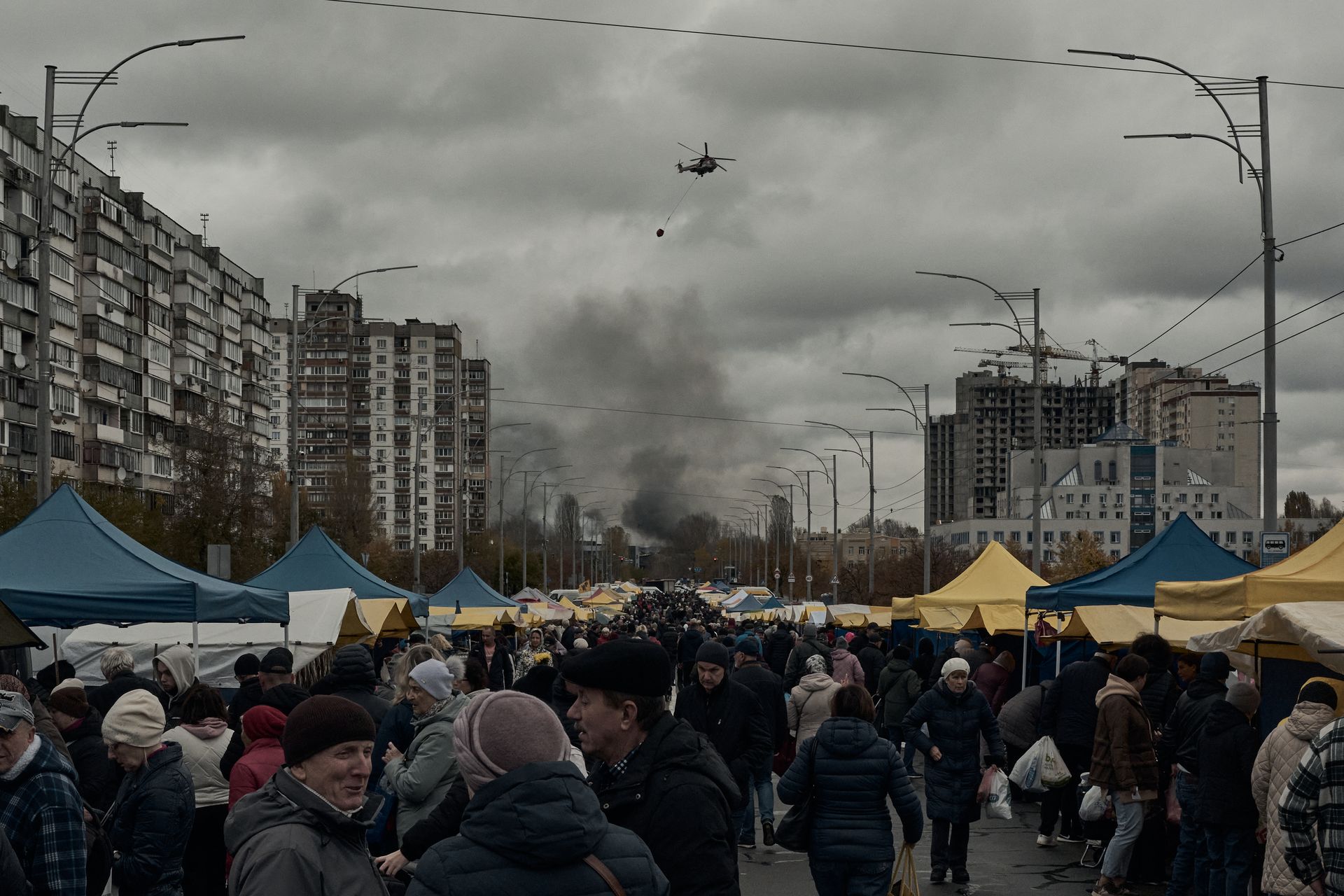International Gymnastics Federation’s ‘neutral status’ is a sham that legitimizes Russian pro-war athletes
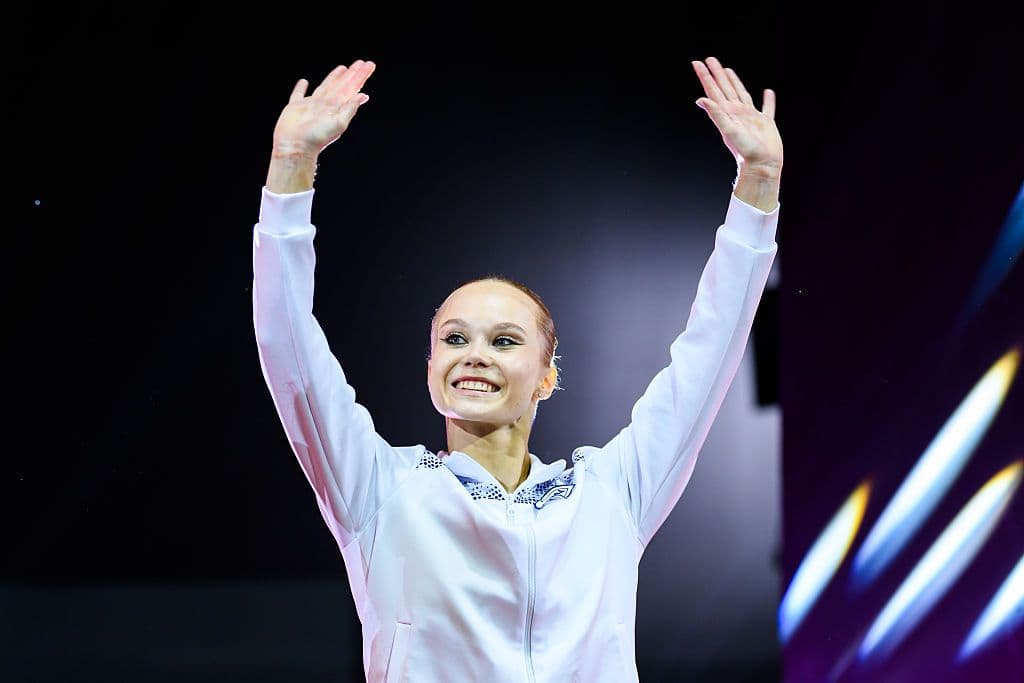
A lot happened this week. Russia hit a kindergarten in the Ukrainian city of Kharkiv, where 48 children were sheltering. A Russian fighter jet violated Lithuanian airspace. And a former political candidate of Vladimir Putin’s United Russia party, Angelina Melnikova, won all-around gold at the 2025 World Artistic Gymnastics Championships in Jakarta, Indonesia.
The Kremlin released a congratulatory statement to Melnikova, which read “Your outstanding performance in the individual all-around event is a wonderful gift to your audiences, coaches, mentors, and all those who supported you on your journey towards this gold medal.”
Following the example of the International Olympic Committee, the International Gymnastics Federation (FIG) banned all Russian and Belarusian athletes from competition following the 2022 full-scale invasion of Ukraine. In 2024, however, the ban was walked back and gymnasts were allowed to apply for the title of “Authorized Neutral Athlete.” One disqualifier for this status is an athlete holding any tie to military or security services, or demonstrating support for Russia’s invasion of Ukraine.
It’s odd, then, that state-funded athlete Melnikova was granted neutrality, given her outward support for Russia’s war and allegiance to the ruling political party that legitimizes it.
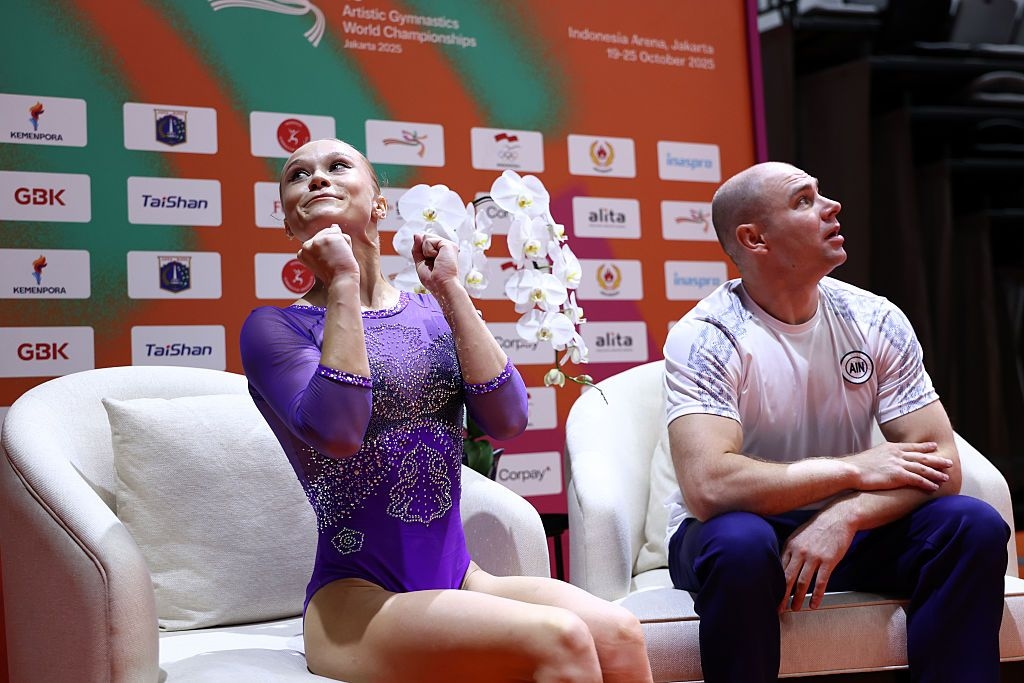
On the 77th anniversary of Russia’s Victory Day, less than three months after Russian tanks rolled over the Ukrainian border, Melnikova posted a photo from the annual military parade in Moscow. The caption of the photo, in which Melnikova can be seen posing with a Russian military veteran, reads “thank you for victory,” and in her hands she displays a leaflet bearing the Z emblem, a propagandistic symbol of support for the 2022 invasion — similar in function to the swastika used by Nazi Germany.
Melnikova also posted links on her social media for charities claiming to help displaced “Russians” from Ukraine’s east, while also “liking” pro-war posts from fellow athletes and public figures. But perhaps no evidence of her political leanings was so blatant as her April 2025 campaign for local government in her hometown of Voronezh, under the banner of the ruling United Russia party that has sustained Putin’s imperial regime for more than two decades.
Melnikova’s 2025 political campaign came just after she received neutral athlete status, which would allow her to compete internationally for the first time in three years. Ukraine’s Olympic Committee formally appealed her eligibility, pointing out that she did not meet the criteria of political neutrality. Melnikova ended her political run after just a few months, claiming it was “difficult to combine politics with sport.” Yet her resignation statement read less like an apology than a recommitment. “I’ve acquired new skills and, most importantly, the approval of my fellow countrymen,” she posted. Three months later, she’s standing on the top of the podium in Jakarta, while Russia applauds.
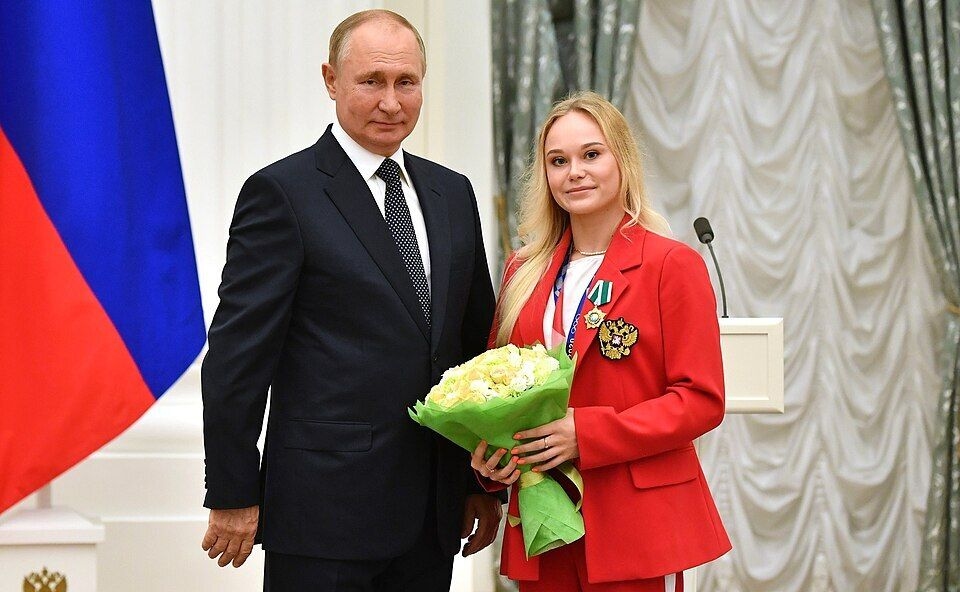
Let’s pause for a moment and address the common arguments for allowing Melnikova and her Russian and Belarusian peers to return to competition under a neutral flag. “Sports should be apolitical.” “Athletes are too young and sheltered to be immune to propaganda.” “Speaking out against the war is dangerous in Russia.”
First, the issue of apoliticality. International sports have always been a proxy for competing ideologies and international rivalries. Champions are celebrated at home as proof that the reigning system is working, and are shown off internationally as a sign of dominance. In short, athletes are, at heart, tools of propaganda. The history of women’s gymnastics in particular is inextricable from Cold War history, and of rivalry between communist and democratic countries. The Soviet Union’s Olga Korbut and Larisa Latynina, as well as Romania’s Nadia Comăneci (who later defected to the United States) are among the most recognized sport figures of the 20th century, representatives of now-defunct communist regimes that demanded both athletic perfection and an idealized version of femininity.
In Russia, many sports (including gymnastics) are state-funded. The Central Army Sports Club of Moscow (CSKA) was a key platform for the Soviet Union to merge sports and military, with athletes receiving military honors in return for their competitive success. To this day, CSKA is run by the Russian Defense Ministry, and funds the training of elite athletes like Melnikova. It’s entirely valid to say that refusal to participate in the Russian state is a barrier to becoming a professional athlete in Russia, but this doesn’t negate the fact that most Russian athletes are, as a rule, representing the Russian military.
The harder question: should young athletes like Melnikova be held responsible for the actions of their government, or for upholding the authoritarian system that they were indoctrinated into from birth? It’s possible to sympathize with the pressures placed on these athletes while categorically denying that they’re given no choice but to believe and espouse state propaganda. Melnikova was extremely privileged by Russian standards, traveling extensively before the full-scale invasion, and had years of access to the internet in uncensored forms. She has peers who have taken a stance against the invasion of Ukraine, from decorated rhythmic gymnast Margarita Mamun (who on Feb. 24, 2022 posted a blue and yellow landscape resembling the Ukrainian flag) to 2022 Olympic gold medalist Anna Shcherbakova, who refused to join her figure skating teammates in a post-victory ceremony with Putin. While dissent may be difficult, and potentially damaging to a professional career, voicing support for the invasion and government is undeniably a choice made voluntarily by individuals. And it’s up to international bodies to enforce these standards when assessing “neutrality.”
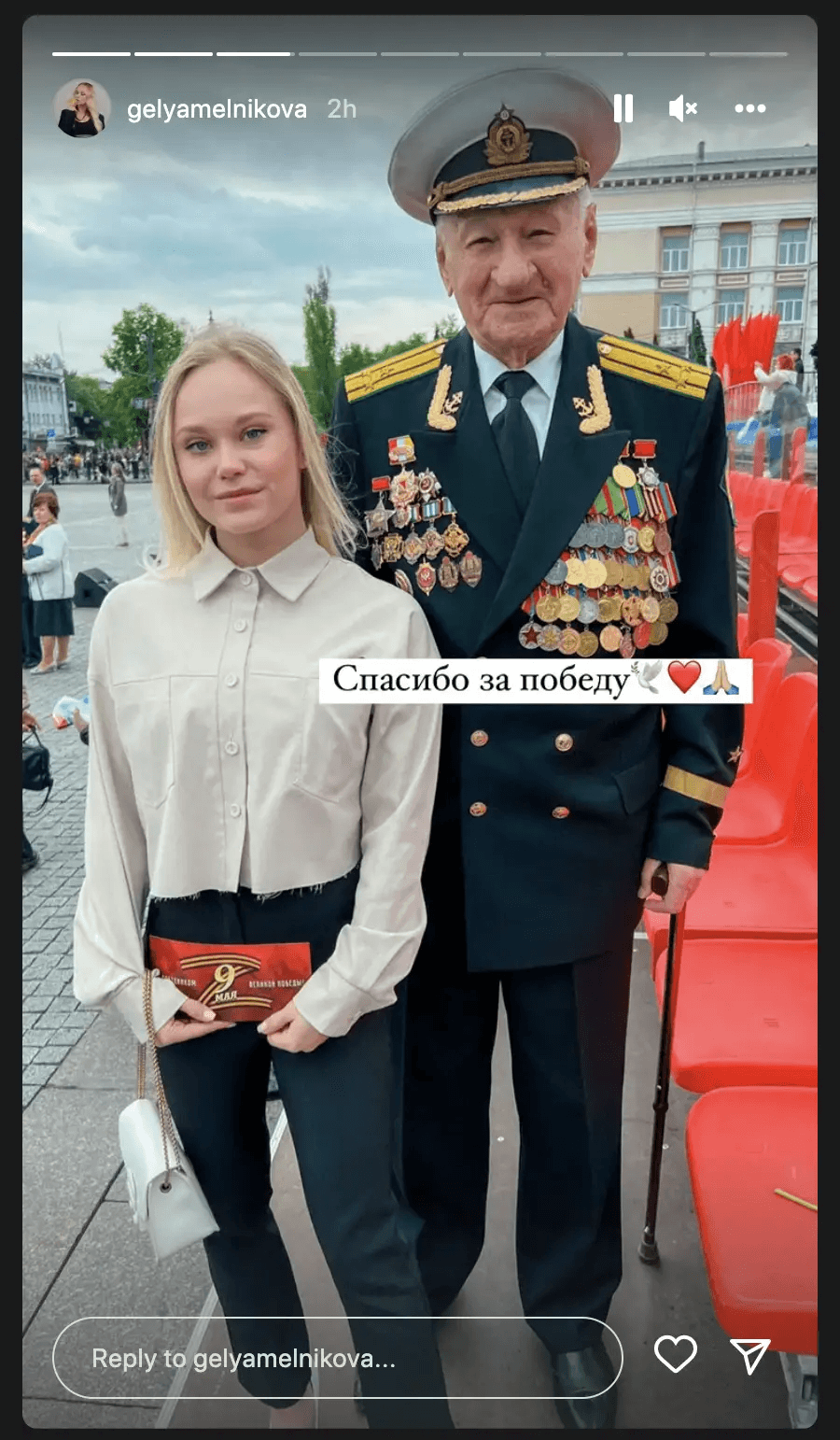
Melnikova’s case brings to mind the early 20th-century Norwegian figure skater Sonja Henie. Henie was a three-time Olympic champion and a pioneer of the sport, and holds record medal counts that haven’t been beaten to this day. She was also a personal friend of Adolf Hitler, famously greeting him with a Nazi salute at the 1936 Olympic Games in Bavaria. I wonder, if Sonja Henie was alive today and giving Nazi salutes while liking Hitler’s social media posts, would we allow her to compete as a neutral athlete? Would we argue that she was a victim of influence? Would we say that sportsmanship and politics are divorced from one another?
As of 2025, approximately 600 Ukrainian athletes and coaches have been killed by Russia’s invasion. Over 700 Ukrainian sports facilities have been damaged by aerial strikes. Former Olympians are fighting on the front lines to defend Ukraine’s territorial integrity, to say nothing of those whose athletic dreams will never come true thanks to the war. As ballistic missiles echo around Ukraine, it’s an insult to see Russian athletes gloating from podiums, the so-called neutral flags on their uniforms of little consequence to the media celebrating them back home.
If there’s a case to be made for allowing athletes to compete under a neutral flag, it’s to claim that individuals shouldn’t be punished for the actions of others. To award neutral status to athletes who proudly and openly participate in the actions that led to their country’s ban is to undermine the principle entirely. In this way, the International Gymnastics Federation can give the illusion of solidarity with Ukraine while reaping the benefits of including Russia in its competitions — and in this way, it legitimizes the invasion while delegitimizing itself as a fair and just governing body.


